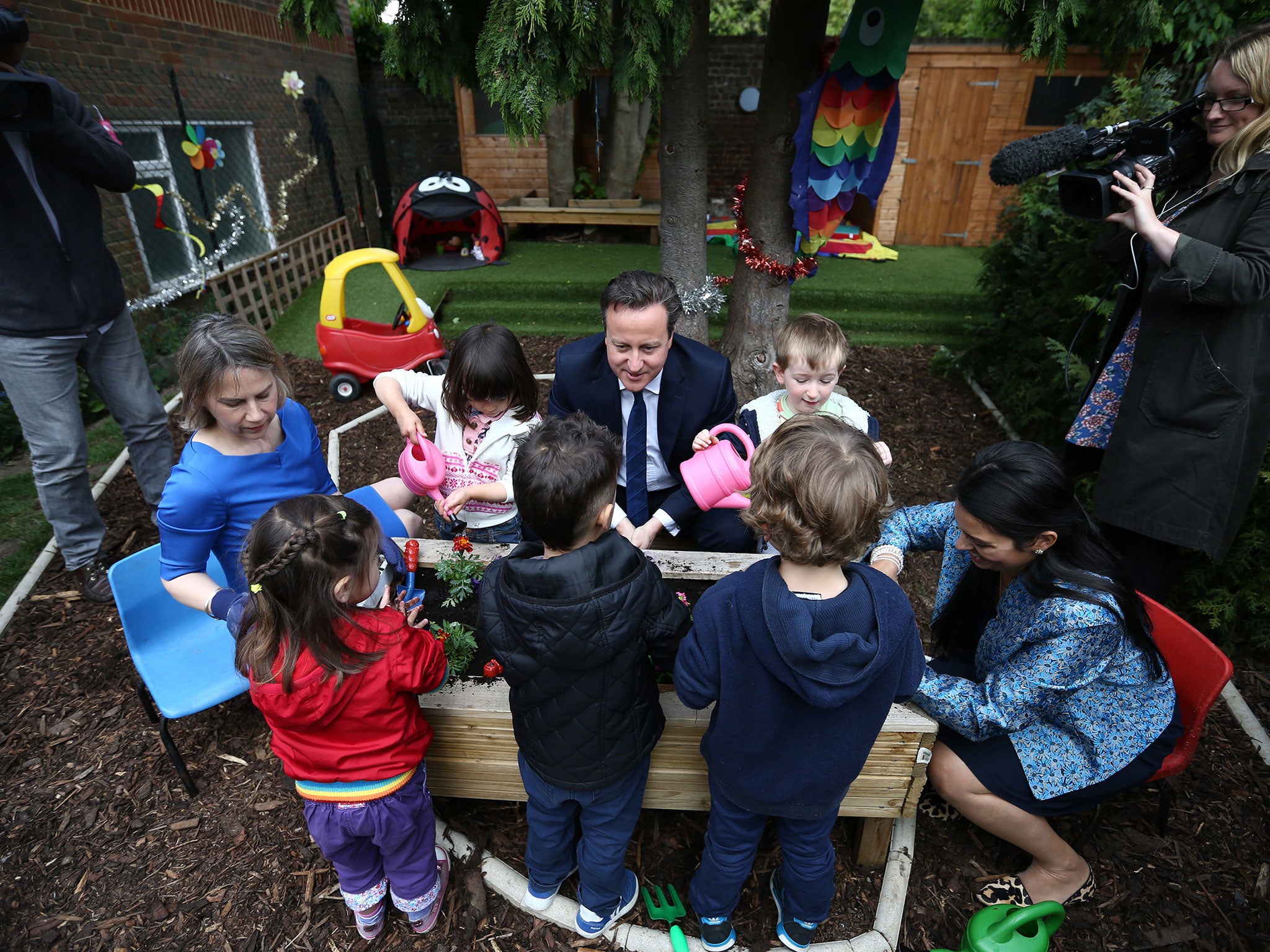'Tax free childcare': Families with an income of up to £300,000 to benefit from tax relief scheme
The measure could save joint-income families up to £2,000 a year

Your support helps us to tell the story
From reproductive rights to climate change to Big Tech, The Independent is on the ground when the story is developing. Whether it's investigating the financials of Elon Musk's pro-Trump PAC or producing our latest documentary, 'The A Word', which shines a light on the American women fighting for reproductive rights, we know how important it is to parse out the facts from the messaging.
At such a critical moment in US history, we need reporters on the ground. Your donation allows us to keep sending journalists to speak to both sides of the story.
The Independent is trusted by Americans across the entire political spectrum. And unlike many other quality news outlets, we choose not to lock Americans out of our reporting and analysis with paywalls. We believe quality journalism should be available to everyone, paid for by those who can afford it.
Your support makes all the difference.Two-earner families with a joint income of up to £300,000 a year will benefit from a government plan to offer tax relief on childcare worth up to £2,000 a year.
“Tax free childcare”, due to take effect this autumn, will complement the scheme announced on Monday to double from 15 to 30 hours a week the amount of “free” childcare funded by the state for three and four year-olds. The extra hours will be phased in from September next year and will be open to all families with both parents in work regardless of their income.
These parents will also receive 20 per cent tax relief for additional hours of childcare for three and four year-olds on top of the “free” state provision and for other children up to the age of 12. For every 80p they spend on childcare, the Government will add 20p, up to a limit of £2,000 a year. To qualify, parents must earn just over £50 a week, and not more than £150,000 a year – so a couple with a joint income of £300,000 could still be subsidised.
Ministers are to reject the advice of the Commission on Social Mobility and Child Poverty, chaired by the former Labour Cabinet minister Alan Milburn. He proposed a £120,000 earnings cap for a couple so that more help could be channelled to low income families, many of whom have seen their child tax credits cut since 2010.
Government officials insisted that the number of very high earners taking advantage of the two childcare schemes would be small, and that there would be administrative costs if means-testing were introduced. Priti Patel, the Employment Minister, said: “This isn't about subsidising well-off people at all. This is about providing affordable childcare and increasing childcare provision for working families.”
The Pre-School Learning Alliance, which represents 14,000 private, voluntary and independent providers, warned that the childcare system was at “breaking point” because of a shortfall in government funding. It said the grant for the existing 15 hours falls an average of 20 per cent short of the cost of providing care - £3.88 rather than £4.53 an hour.
Gavin Kelly, chief executive of the Resolution Foundation think tank, welcomed the 30 hours pledge but said big question marks remained over how it will be funded. He said: “There is a major issue in terms of the capacity of providers and whether the public funding made available will be sufficient to cover each childcare place. All of which means it will be years before we even get close to fulfilling this pledge – and even then there will be major gaps in provision for one and two year-olds.”
Join our commenting forum
Join thought-provoking conversations, follow other Independent readers and see their replies
Comments